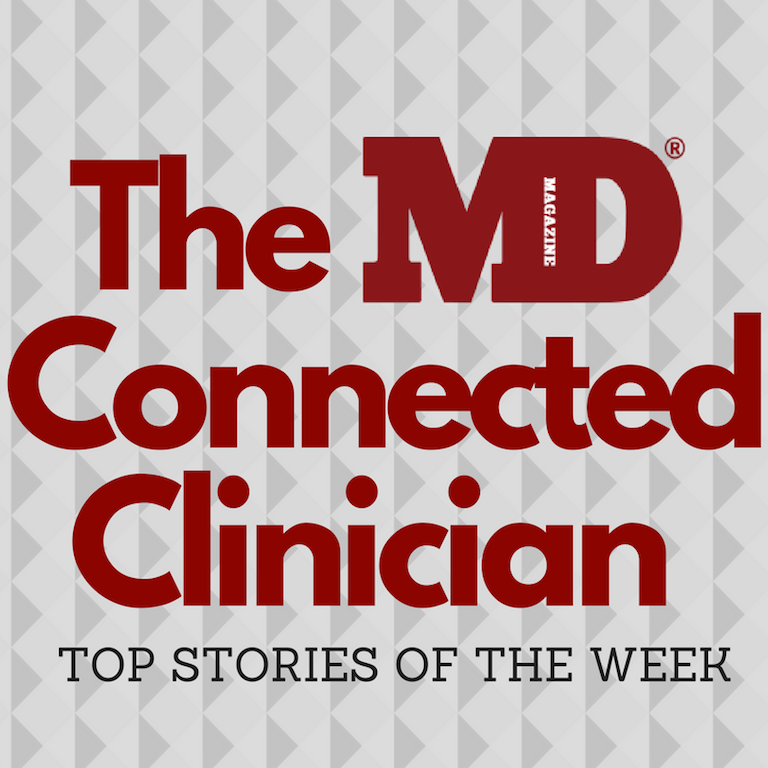Article
The Connected Clinician: Top Stories of the Week for November 10
Author(s):
Stay connected and up-to-date in health care news with the Connected Clinician top stories of the week for the week of November 10.

This week, the medical community has been rife with alternatives. From seeking alternatives to opioids to seeking alternative uses for established medications, the search for additional availability is accelerating.
As the opioid epidemic consistently makes headlines, the search for alternative therapies continues to ramp up. Somewhat unsurprisingly, an alternative that has been suggested in emergency room settings is combination acetaminophen and ibuprofen. Meanwhile, aspirin is being explored for use in multiple conditions, stretching from age-related macular degeneration to the hepatitis B virus.
IBD Rates Rising Worldwide in Proportion with Urbanization
Assessing the Impact of Low-Dose Aspirin on AMD
Aspirin Could Reduce HBV Patients' Liver Cancer Risk
Veterans Affairs Aims at HCV Infection Cure
If Patients Won't Tell Their Docs About Drug Use, Their Search History Will
Despite Benefits, MS Patients Underutilize Exercise
FDA Approves 2-Dose Hepatitis B Vaccine, Heplisav-B
FDA Accepts IDP-118 NDA for Plaque Psoriasis
FDA Panel Recommends CAM2038 in Opioid Use Disorder
Of course, the US Food and Drug Administration (FDA) was also busy assessing drugs coming down the pipeline, as well. As always, the MD Magazine team was hard at work to bring you all the big stories that unfolded this week. Here are the hottest headlines:More than 0.3% of people in industrialized nations have inflammatory bowel disease (IBD), according to a new systematic review. While this prevalence is plateauing, it is accelerating in developing nations, prompting scientists to recommend that health systems prepare infrastructure, resources, and personnel to treat an increasing number of patients worldwide.A sub-study on age-related macular degeneration (AMD), of the Aspirin in Reducing Events in the Elderly (ASPREE-AMD) study seeks to explore the effects of a 100 mg aspirin regimen on AMD incidence, development, and progression.Patients with chronic hepatitis B virus (HBV) who take an aspirin a day may reduce their risk of hepatocellular carcinoma (HCC), the most common form of adult liver cancer, a new study suggests.The US Department of Veterans Affairs (VA), the nation's largest care provider for hepatitis C virus (HCV) patients, has recently described its successful programs and indicated it is "poised to share" best practices with other organizations and healthcare providers to reduce the overall burden of HCV infection.It’s easy to understand why illegal drug users are reluctant to speak with physicians about their drug use behaviors, but that reluctance hinders the scientific community’s understanding of how illicit substances like cannabis can cause adverse health events.An international team of experts found that exercise is underutilized in patients with multiple sclerosis (MS) — despite its potential to improve symptoms, restore function and increase the quality of life — and recommended that clinicians promote exercise as a therapeutic intervention.After clearing multiple hurdles on its way to a decision, Heplisav-B, the only 2-dose Hepatitis B (HBV) vaccine recombinant in the United States, was approved by the US Food and Drug Administration (FDA) for the prevention of infection caused by all known subtypes of HBV.Ortho Dermatologics has announced that the US Food and Drug Administration (FDA) accepted the New Drug Applications (NDA) for halobetasol propionate and tazarotene (IDP-118) lotion, a topical treatment for plaque psoriasis in adults.Braeburn Pharmaceuticals, Inc. has announced the US Food and Drug Administration (FDA) Psychopharmacologic Drugs Advisory Committee and the Drug Safety and Risk Management Advisory Committee jointly voted to recommend approval of CAM2030 for the treatment of adults with opioid use disorder (OUD).





